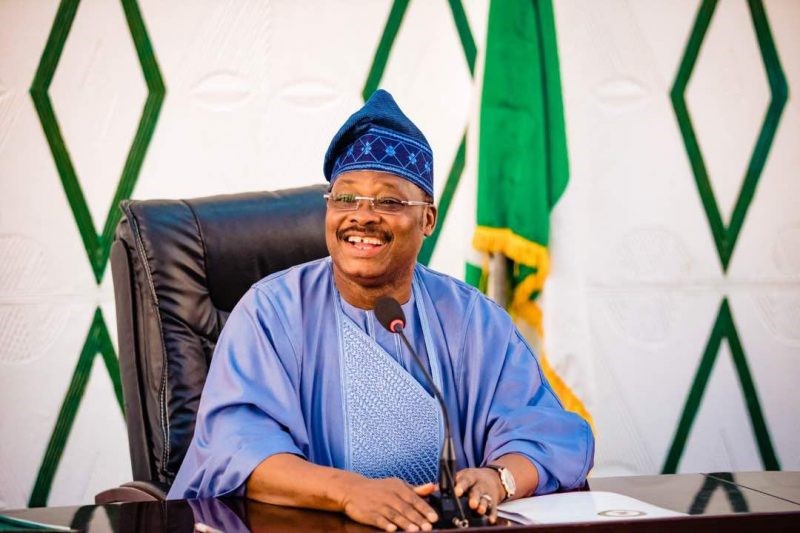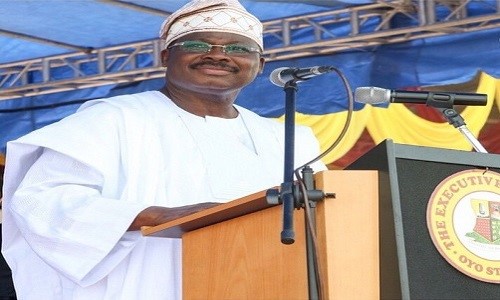Nigeria’s political landscape has been marked by several epochs and eras, each characterised by distinct political ideologies, strategies, and personalities. One such era that left an indelible mark on the nation’s political history is the “Amala Politics” era. This period, which spanned from the late 1970s through the 1990s, was marked by the dominance of a group of influential politicians who hailed from the Yoruba ethnic group, particularly the Ogbomoso and Oke-Ogun regions of Oyo State. The term “Amala Politics” derives its name from the popular Yoruba dish, amala, signifying the grassroots nature of these politicians and their ability to connect with ordinary people.
To understand the Amala Politics era, one must first consider the socio-political climate of Nigeria during this time. The period following Nigeria’s independence in 1960 was marked by political instability, coups, and a series of military regimes. It was a time when ethnic and regional divisions were particularly pronounced, and the nation was searching for a sense of stability and unity.
The Yoruba people, one of Nigeria’s major ethnic groups, were not immune to these challenges. The region experienced its share of political turmoil, often revolving around the quest for power, influence, and resources. Amala politics was a unique and influential style of political engagement that left a lasting mark on Oyo State, Nigeria
“Amala politics” draws its name from the popular Nigerian dish “amala,” which is made from yam or cassava flour. Just as amala is a staple food enjoyed by many Nigerians, Amala politics symbolized a form of political engagement that was deeply rooted in the local culture and had a broad appeal.
Key Figures of the Amala Politics Era
1. Lamidi Adedibu: Often regarded as the patriarch of Amala Politics, Lamidi Adedibu was a prominent political godfather from Ibadan, the capital of Oyo State. He was known for his strongman approach to politics and was a key player in the Alliance for Democracy (AD), a major political party during this era.
2. Alhaji Lam Adesina: A close ally of Lamidi Adedibu, Alhaji Lam Adesina served as the Governor of Oyo State from 1999 to 2003 under the platform of the Alliance for Democracy (AD). His administration is remembered for its emphasis on populist policies and grassroots development.
3. Senator Rashidi Ladoja: Another significant figure in Amala Politics, Senator Rashidi Ladoja, became the Governor of Oyo State in 2003 under the banner of the People’s Democratic Party (PDP). His tenure marked a shift away from Adedibu’s influence but retained the core values of Amala Politics.
Strategies of Amala Politics
Grassroots Mobilisation: Amala Politics was grounded in grassroots mobilisation and engagement. Politicians in this era were known for their ability to connect with ordinary citizens, often sharing meals of amala and gbegiri (a local soup) with constituents to foster a sense of belonging.
Patronage and Clientelism: The Amala Politics era was characterised by patron-client relationships. Politicians provided various forms of support to their followers, such as financial assistance, job opportunities, and educational scholarships, in exchange for loyalty and support during elections.
Street-level Politics: Amala Politics often played out in the streets and marketplaces, where politicians would engage directly with the masses, addressing their concerns and grievances. This approach endeared them to the people and allowed for effective mobilisation.

Impact of Amala Politics
1. Increased Yoruba Identity: The Amala Politics era fostered a sense of Yoruba identity and unity. It provided a platform for Yoruba politicians to address regional issues and advocate for the Yoruba agenda on a national level.
2. Democratization of Politics: Amala Politics played a role in the democratisation of Nigerian politics. It allowed for greater participation of ordinary citizens in the political process and contributed to the growth of political consciousness in the Yoruba region.
3. Legacy of Populism: The legacy of Amala Politics continues to influence Nigerian politics, particularly in the southwestern region. Populist policies and an emphasis on grassroots development remain key elements of political campaigns in this area.
4. Criticisms and Controversies: While Amala Politics had its strengths, it was not without its controversies. Critics argue that it promoted clientelism, corruption, and a focus on short-term gains rather than long-term development.
The decline of Amala politics in Oyo State can be attributed to several key factors. First and foremost, the political landscape in Nigeria underwent significant changes as the country transitioned to a democratic system. This shift towards democracy brought about a demand for more structured and transparent political processes, which contrasted with the informal and often opaque nature of Amala politics.
Another factor contributing to the decline was the widespread criticism and controversies associated with Amala politics. Critics argued that this style of politics was closely linked to political thuggery, intimidation, and a lack of transparency in the political process. Such criticisms led to a growing sentiment for more responsible and ethical political behaviour.
The passing of key figures who were synonymous with Amala politics, such as Chief Lamidi Adedibu, also played a role in its decline. With the loss of these influential leaders, the networks and structures that sustained Amala politics weakened, further diminishing its prominence.
Additionally, changing voter expectations played a pivotal role. The electorate in Oyo State and Nigeria as a whole began to demand more from their political leaders. Voters sought candidates who could deliver on issues such as development, infrastructure, and public services, rather than merely relying on patronage and informal support as was common in Amala politics.

Despite its decline, the legacy of Amala politics persists in Oyo State’s political landscape. Informal patronage systems and local alliances, which were central to Amala politics, continue to shape how politics is conducted at the grassroots level. Politicians often utilise these networks and relationships to mobilise support and secure their positions.
The concept of forming alliances with traditional rulers, local interest groups, and community leaders, a hallmark of Amala politics, remains a prevalent strategy employed by politicians in Oyo State. These alliances are used to garner broader support and consolidate political power.
Amala politics also serves as a historical reference point in Oyo State’s political history. It is often cited in discussions about the evolution of political practices and the need for greater transparency and accountability in governance. The shift towards more modern and transparent political practices reflects the evolving expectations of the electorate in the region as they seek responsive and accountable leadership.
The Amala Politics era in Nigeria’s political history remains a pivotal period that shaped the nation’s democratic evolution. It provided a platform for Yoruba politicians to assert their influence, fostered a sense of identity and unity among the Yoruba people, and promoted grassroots engagement in politics.
While it had its flaws and controversies, the legacy of Amala Politics continues to influence the political landscape of Nigeria, especially in the southwestern region. As Nigeria’s political landscape continues to evolve, it is essential to recognise and analyse the various eras, such as Amala Politics, that have contributed to the nation’s rich and complex political history.
Sources
- https://guardian.ng/opinion/the-end-of-amala-politics-in-oyo/
- https://punchng.com/adedibus-mansion-loses-shine-followers-relive-ibadan-strongmans-amala-politics/
- https://lawcarenigeria.com/playing-amala-politics-with-ajimobis-death/
- https://www.vanguardngr.com/2011/06/oyo-it-is-more-than-amala-politics-for-ajimobi/
- https://www.vanguardngr.com/2015/05/end-of-amala-politics-ajimobi/
- https://en.wikipedia.org/wiki/Lamidi_Adedibu#:~:text=It%20was%20said%20that%20nobody,strong%20man%20of%20Ibadan%20politics%22.




